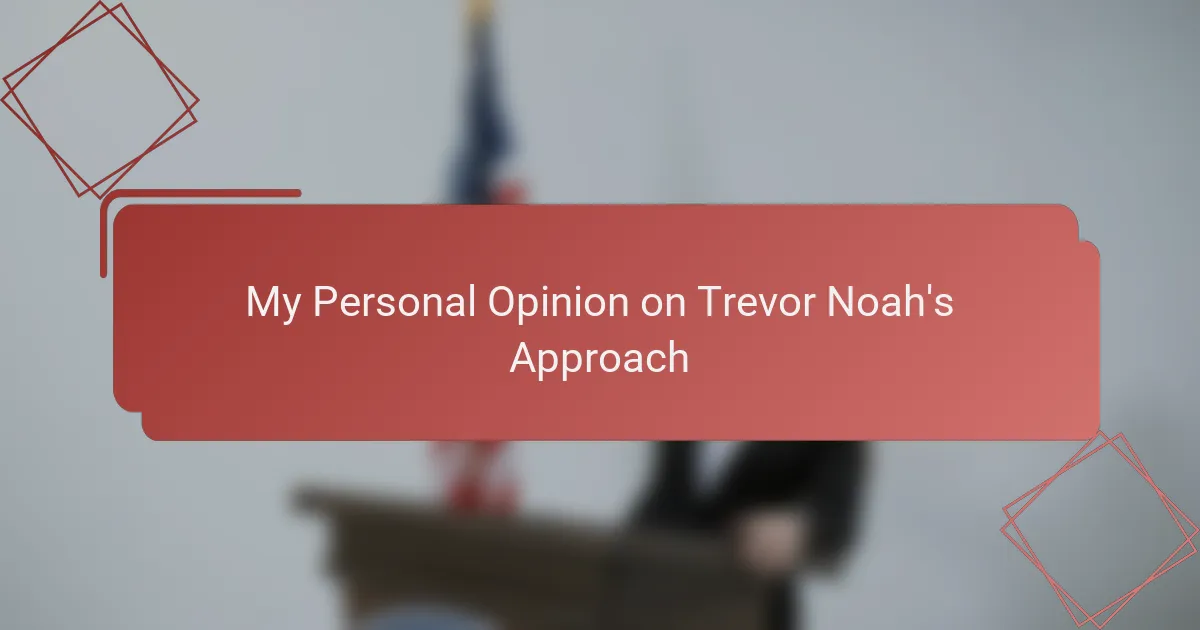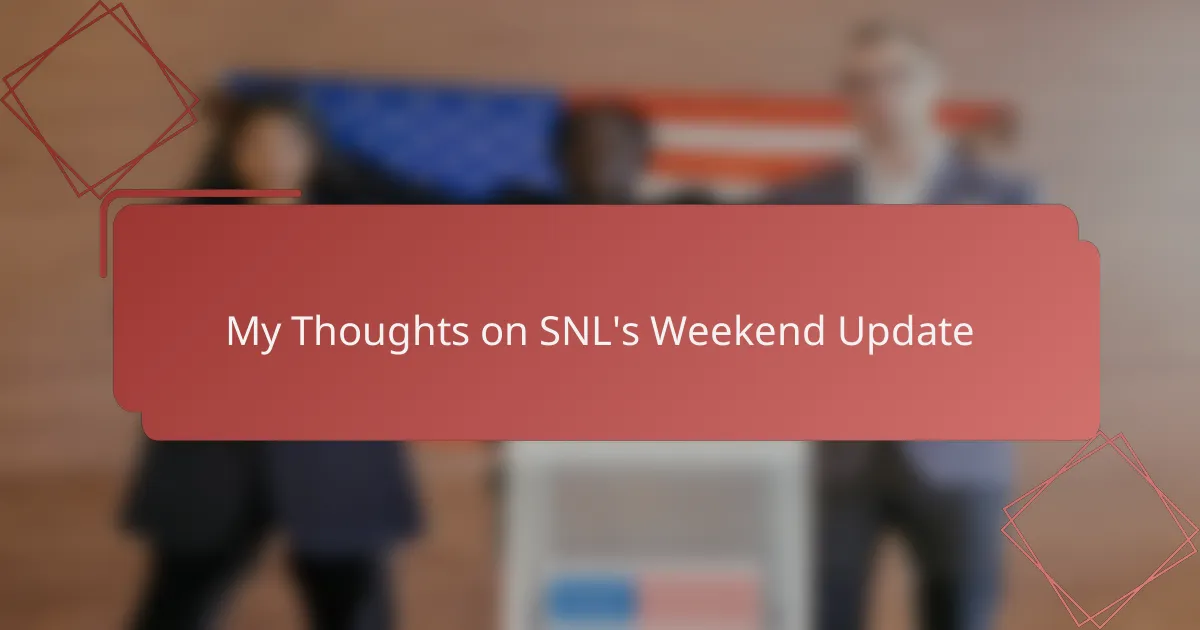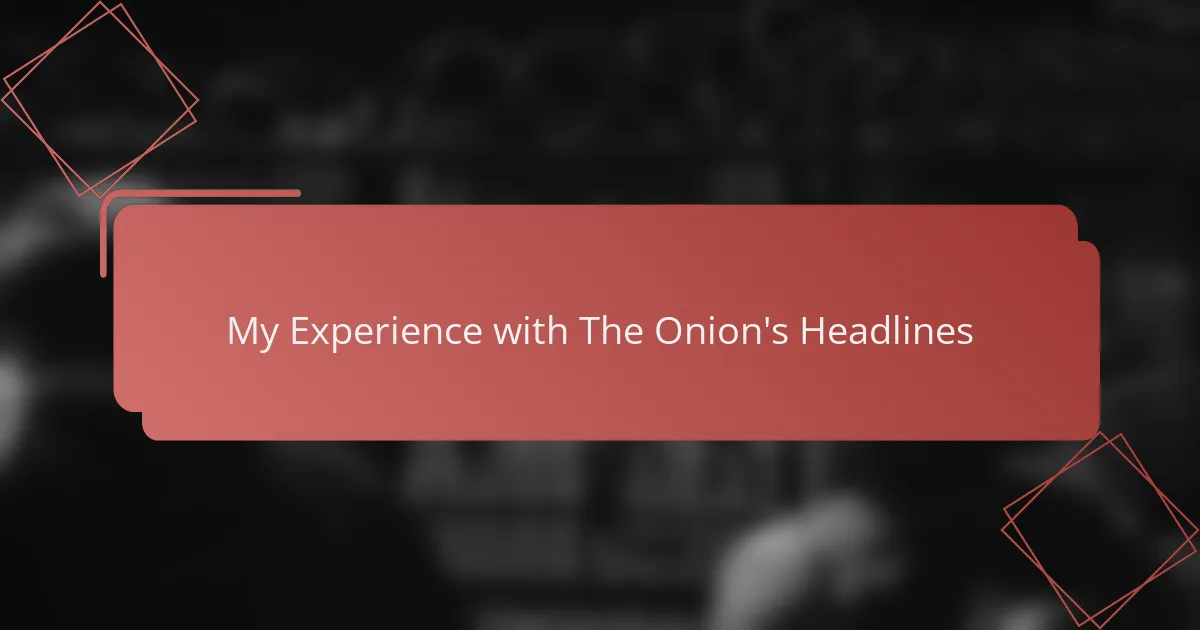Key takeaways
- Political satire, particularly in Trevor Noah’s style, blends humor with serious critique, encouraging critical thinking and empathy.
- Noah’s unique personal experiences enrich his commentary, making complex political issues relatable and approachable.
- His balanced approach allows for engaging discussions about difficult topics without alienating audiences.
- Using humor in political dialogue helps lower defenses and fosters connection, making it easier to address controversial issues.
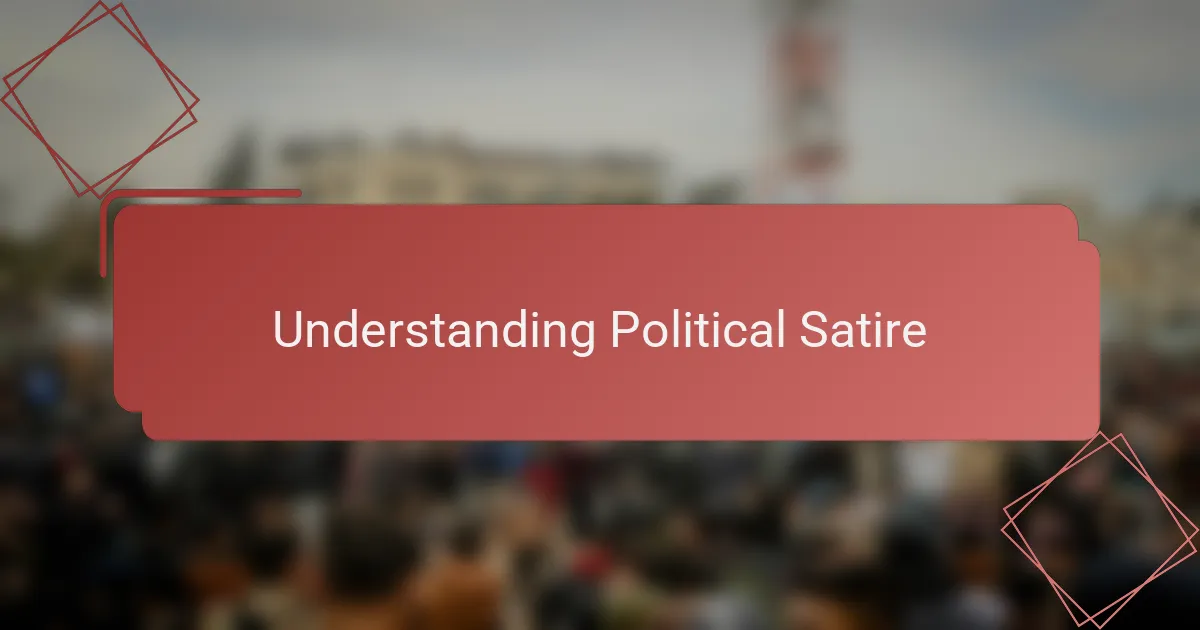
Understanding Political Satire
Political satire, in my experience, serves as a sharp mirror reflecting the complexities and contradictions within political systems. I’ve often found that it does more than just entertain—it provokes thought and invites us to question authority in ways traditional discourse often misses. When I first encountered Trevor Noah’s work, I was struck by how he wielded satire to navigate sensitive political topics with both humor and insight, making critical commentary accessible without losing depth.
What truly resonates with me about political satire is its power to blend humor with serious critique. It allows audiences to confront uncomfortable truths in a more digestible form, something I’ve personally appreciated during times of political tension. Here’s why I think effective political satire, especially in Noah’s style, is crucial:
- It encourages critical thinking by highlighting inconsistencies and hypocrisy.
- It uses humor to disarm resistance, making difficult topics approachable.
- It fosters empathy by showing multiple perspectives through wit.
- It often bridges cultural and political divides, creating a shared space for dialogue.
- It challenges the status quo without alienating the audience.
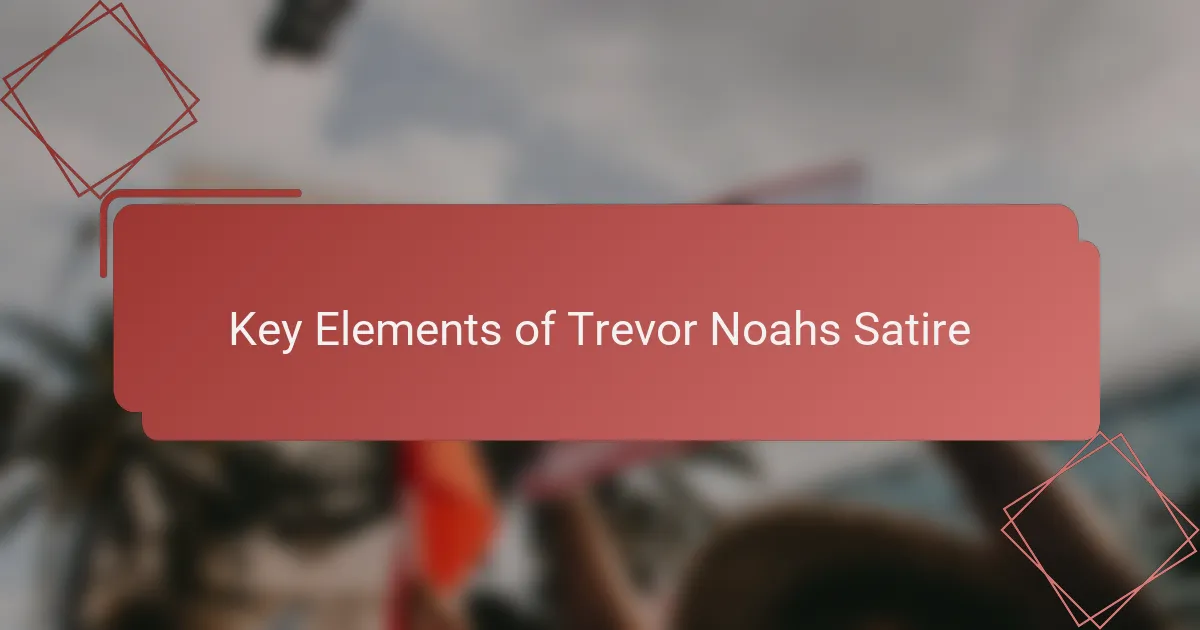
Key Elements of Trevor Noahs Satire
Trevor Noah’s satire stands out to me because of its unique blend of sharp wit and genuine empathy. He doesn’t just poke fun at politicians or policies; he often digs into the human stories behind the headlines, making me feel like I’m part of a shared conversation rather than a passive observer. Have you ever noticed how his jokes can make you laugh and then immediately make you think? That balance is something I greatly admire.
What I find particularly compelling is his skillful use of personal experience to enrich his commentary. By weaving in his own background and cultural observations, he adds layers of authenticity and insight that many satirists miss. It’s like he’s inviting us to see the world through his eyes, which makes the political critique more relatable and less preachy in my opinion.
Another key element is his timing and delivery—there’s a rhythm to his satire that never feels rushed or forced. Watching him, I realize how crucial pacing is in satire because it allows the audience to absorb the humor and the message simultaneously. This approach makes his political satire not only entertaining but also deeply effective in provoking thought, which is why I keep coming back for more.
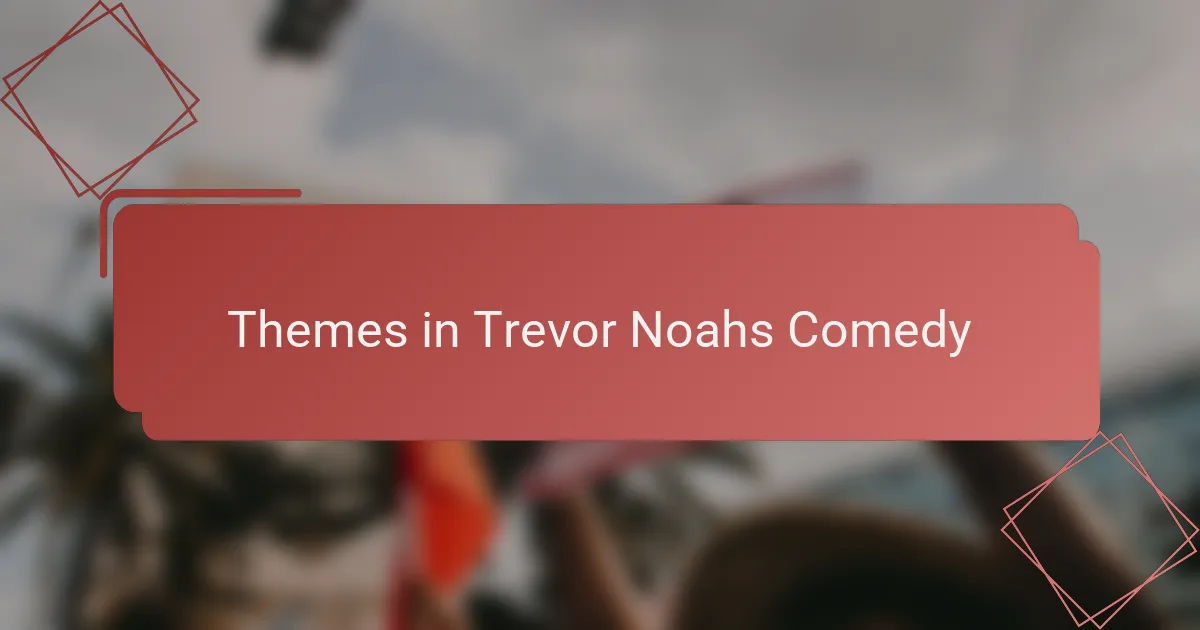
Themes in Trevor Noahs Comedy
One theme that I constantly notice in Trevor Noah’s comedy is the exploration of identity and cultural clash. It’s fascinating how he draws on his unique South African background to highlight not just political issues but also the everyday struggles of belonging and understanding across different cultures. Have you ever caught yourself laughing at something that also made you reflect deeply on your own biases? That’s the kind of moment Trevor often creates for me.
Another theme that stands out is his focus on power dynamics, especially how authority is wielded and challenged. I think his ability to unpack complex political hierarchies through humor is what keeps me so engaged. It’s almost like he’s giving us a backstage pass to the absurdities of those in power, making it clear that politics is not just black and white but full of contradictions and ironies.
What I appreciate most, though, is how compassion weaves through his work. Even when addressing harsh realities or controversial topics, there’s an underlying empathy that refuses to demonize anyone outright. I’ve found this approach refreshingly human, reminding me that satire can critique without losing its warmth—and that balance is something I believe only a few comedians master.
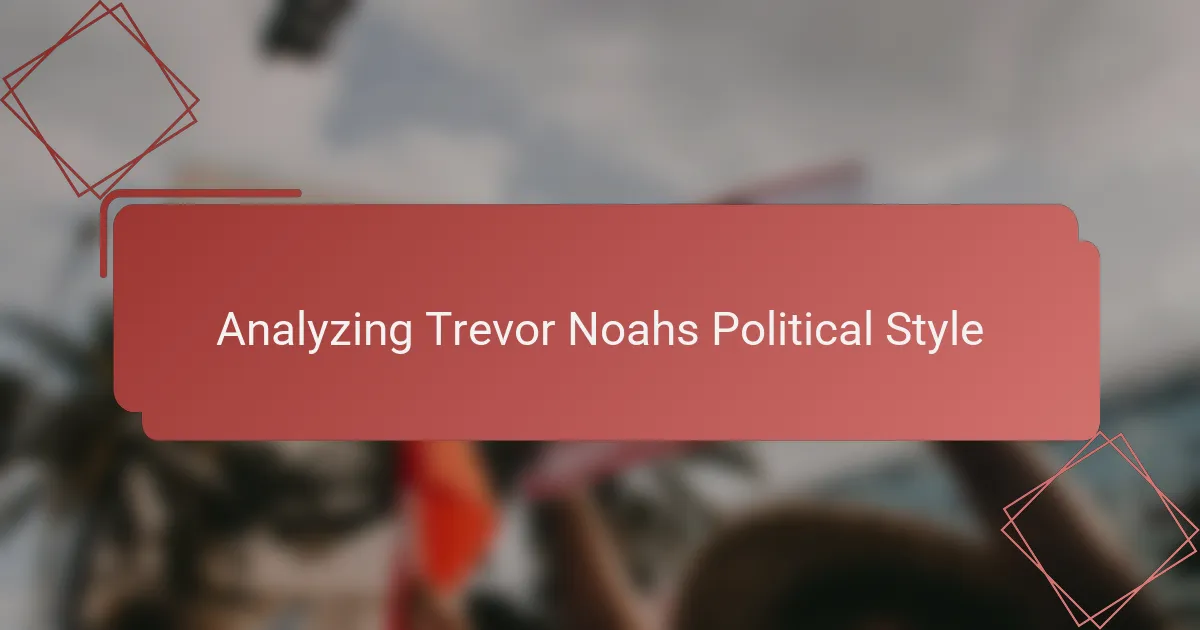
Analyzing Trevor Noahs Political Style
Trevor Noah’s political style is uniquely balanced between sharp wit and empathetic storytelling. From my perspective, what makes his approach stand out is how he manages to tackle complex political issues without alienating viewers. I recall watching one episode where he dissected immigration policies with such humor and humanity that it sparked genuine reflection rather than defensiveness.
| Aspect | Trevor Noah’s Approach |
|---|---|
| Humor Style | Satirical yet relatable, blending global and American politics |
| Engagement | Connects deeply with diverse audiences through personal stories |
| Tone | Balanced between critical analysis and compassion |
| Controversy Handling | Uses humor to soften criticism, making tough topics accessible |
| Use of Personal Experience | Integrates his multicultural background to provide fresh perspectives |
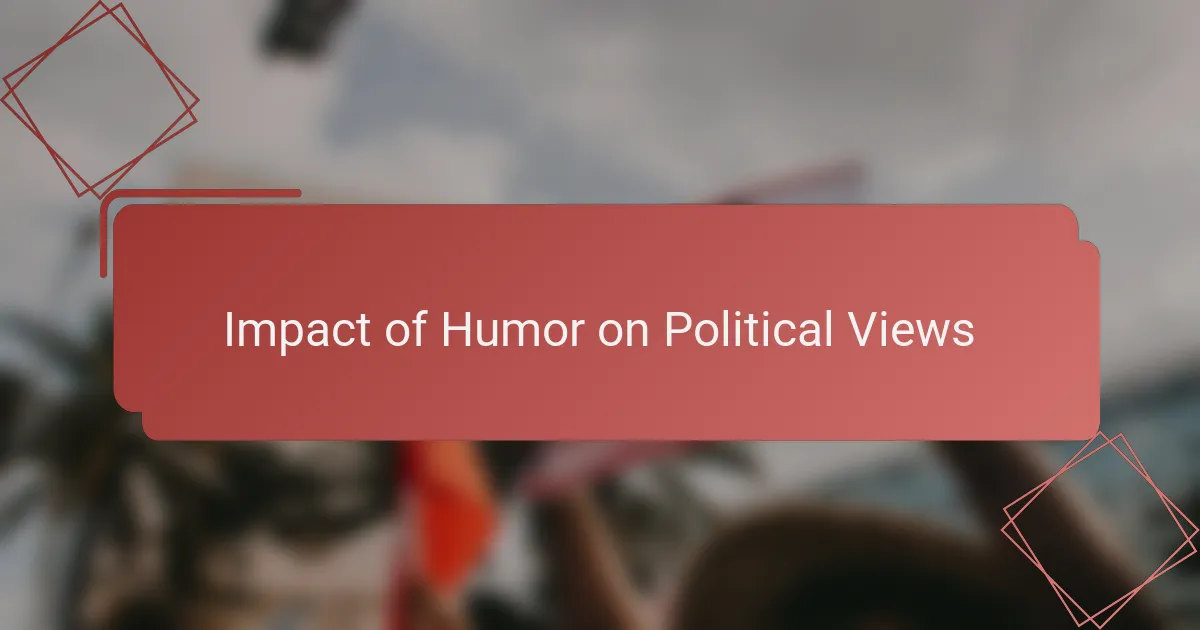
Impact of Humor on Political Views
The way humor shapes political opinions is fascinating. From my experience watching Trevor Noah, his humor doesn’t just entertain—it breaks down complex political ideas and makes me think differently. I’ve noticed that his approach often softens my initial biases, allowing me to engage more openly with opposing viewpoints.
| Aspect | Trevor Noah’s Approach |
|---|---|
| Style of Humor | Witty, relatable, and often self-reflective, encouraging empathy |
| Effect on Audience | Promotes critical thinking and openness rather than division |
| Political Impact | Challenges stereotypes and simplifies complex issues without losing nuance |
| Personal Experience | Makes political discussions feel less confrontational and more engaging |
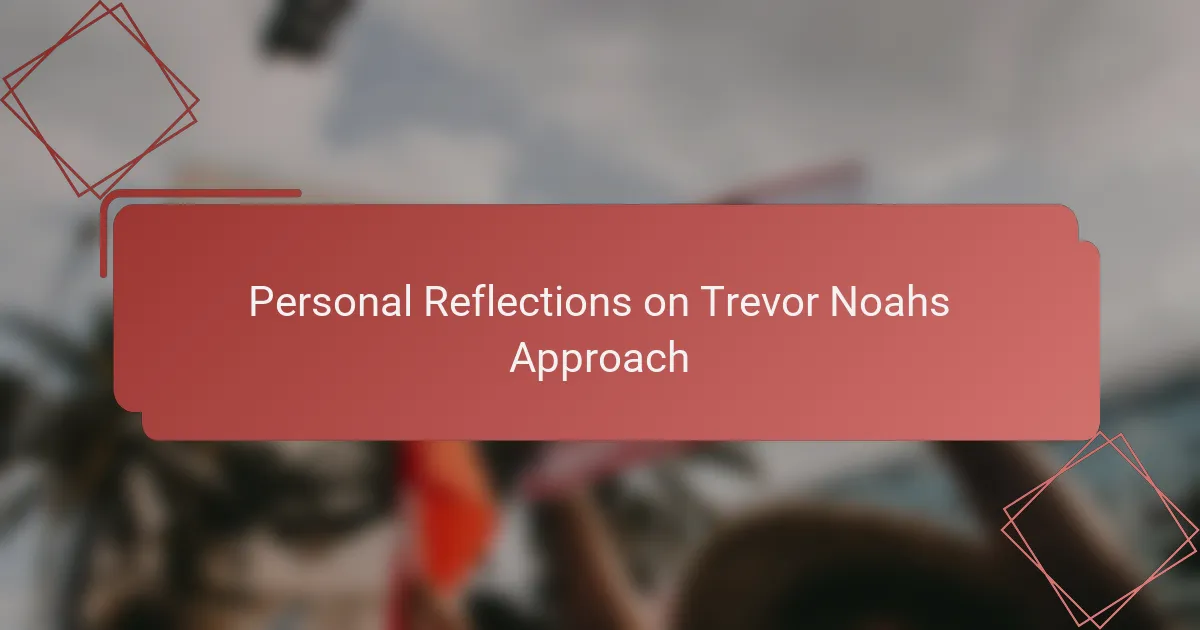
Personal Reflections on Trevor Noahs Approach
Trevor Noah’s approach to political satire strikes me as both refreshing and insightful, especially in today’s polarized media landscape. I recall watching his segments during the early days of the pandemic, where his ability to blend humor with critical commentary helped me process the overwhelming flood of news without feeling completely drained. His style isn’t just about making jokes; it’s about making us think and reflect.
What really stands out to me is how Trevor uses his unique background to offer perspectives that often go unheard in mainstream satire. This personal lens adds a depth to his humor that feels authentic and impactful.
- Balances humor with thoughtful critique, avoiding cynicism
- Draws on personal and cultural experiences to enrich commentary
- Maintains accessibility while tackling complex political issues
- Employs empathy, making even divisive topics relatable
- Uses satire as a tool for education, not just entertainment
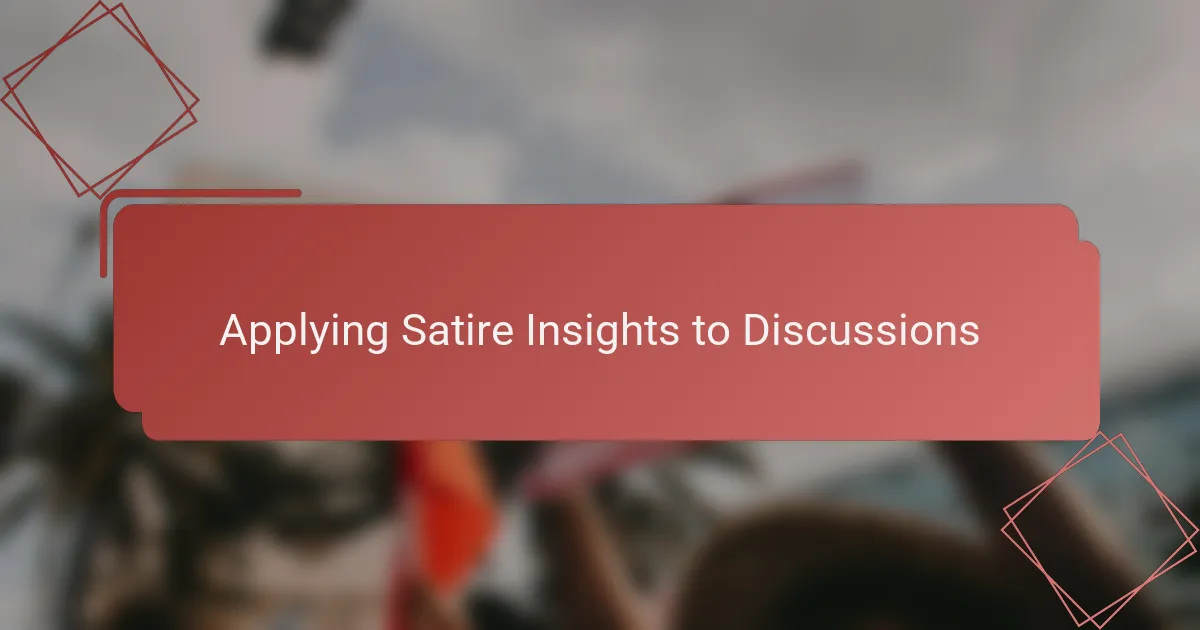
Applying Satire Insights to Discussions
Applying satire insights to discussions, I find, transforms how we engage with tough political topics. Have you noticed how introducing humor can lower defenses and open the door for honest conversation? When I’ve tried this myself, borrowing a page from Trevor Noah’s playbook, it often shifts the mood from confrontational to curious, inviting people to explore rather than retreat.
What strikes me about using satire in dialogue is its ability to spotlight contradictions or absurdities without turning the exchange sour. In my experience, weaving in a bit of wit helps highlight issues more vividly, making complex ideas easier to grasp. It’s almost like satire acts as a gentle nudge, encouraging critical thinking without sounding preachy or abrasive.
I also appreciate how satire can build empathy by revealing different perspectives through humor. I recall times when I found myself laughing along with someone whose views I might normally resist, and that shared moment of amusement created a surprising bridge between us. Doesn’t that suggest that satire isn’t just about comedy but about connection, too? This, I believe, is why applying satire insights can truly enrich political discussions.
